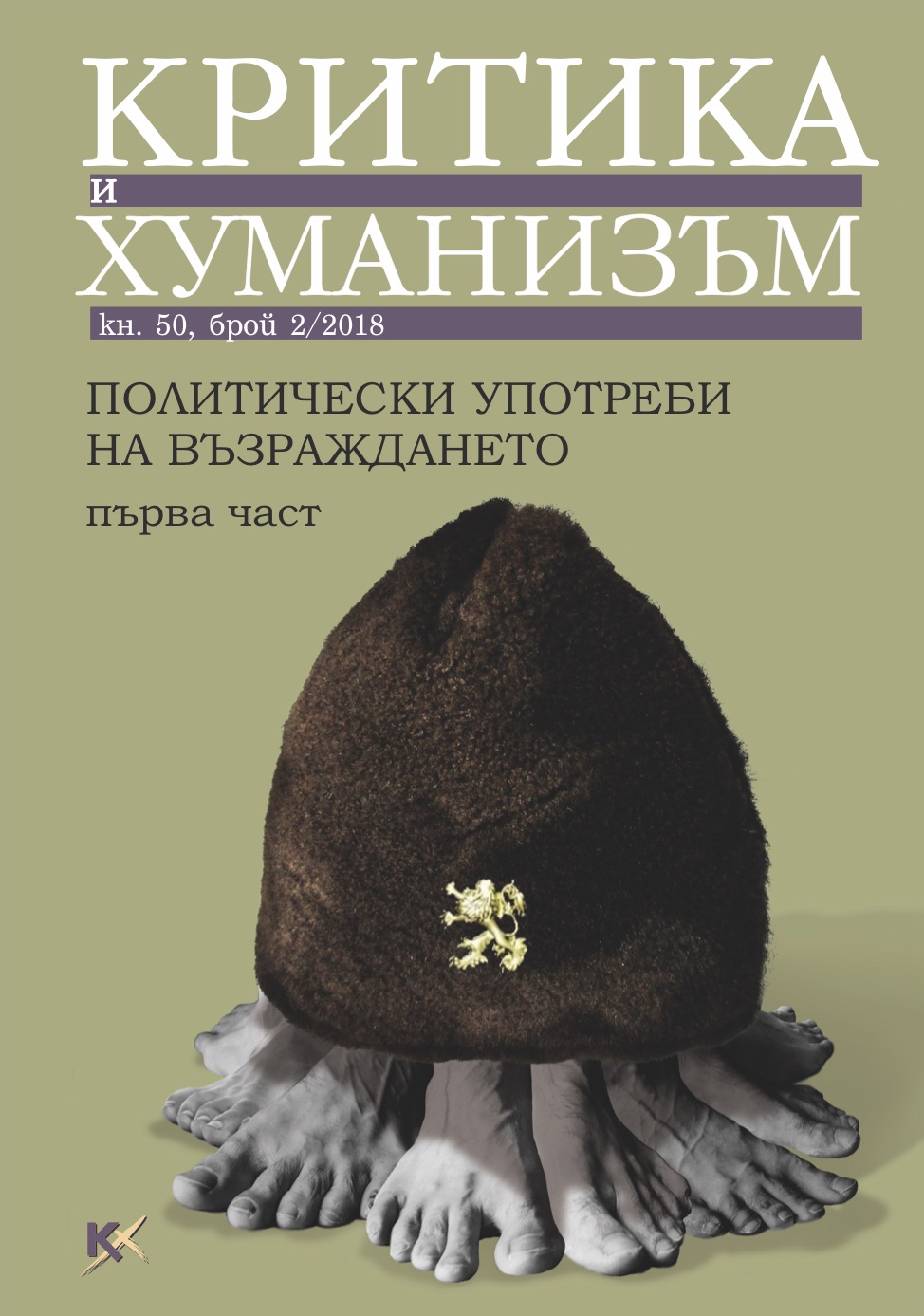
We kindly inform you that, as long as the subject affiliation of our 300.000+ articles is in progress, you might get unsufficient or no results on your third level or second level search. In this case, please broaden your search criteria.

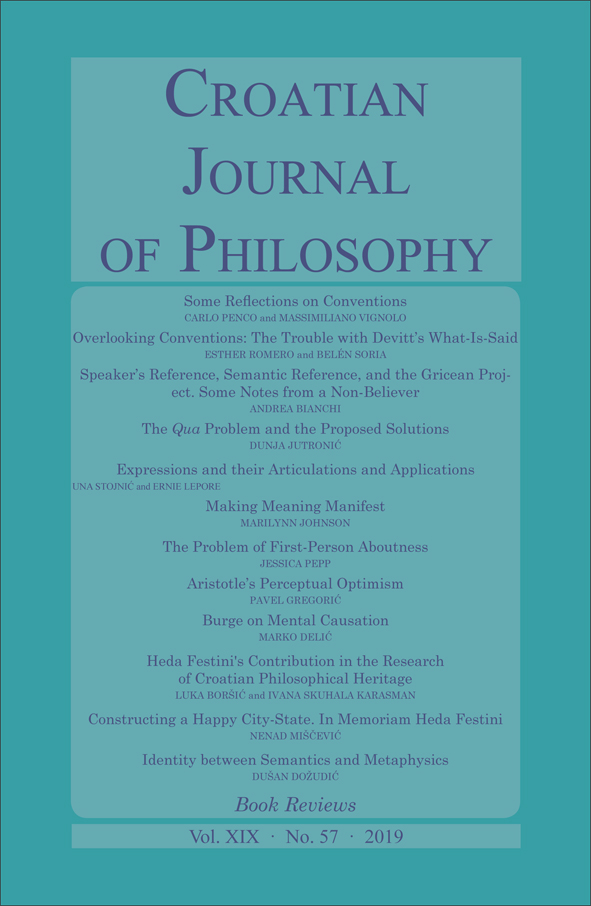
In this paper, I would like to present Aristotle’s attitude to sense-perception. I will refer to this attitude as “perceptual optimism”. Perceptual optimism is, very briefly, the position that the senses give us full access to reality as it is. Perceptual optimism entails perceptual realism, the view that there is a reality out there which is accessible to our senses in some way or other, and the belief that our senses are veridical at least to some extent, but it is more comprehensive than that. For instance, a perceptual optimist does not admit such things as qualities which are perceptible in principle but not by us or bodies too small to be perceptible. In this paper I argue that Aristotle is a perceptual optimist, since he believes that reality, at least in the sublunary sphere, is indeed fully accessible to our senses. In the first and largest part of this paper, I will show, in seven distinct theses, what Aristotle’s perceptual optimism entails. In the second and shorter part, I will put Aristotle’s position in a wider context of his epistemology and show why it was important for him to be a perceptual optimist.
More...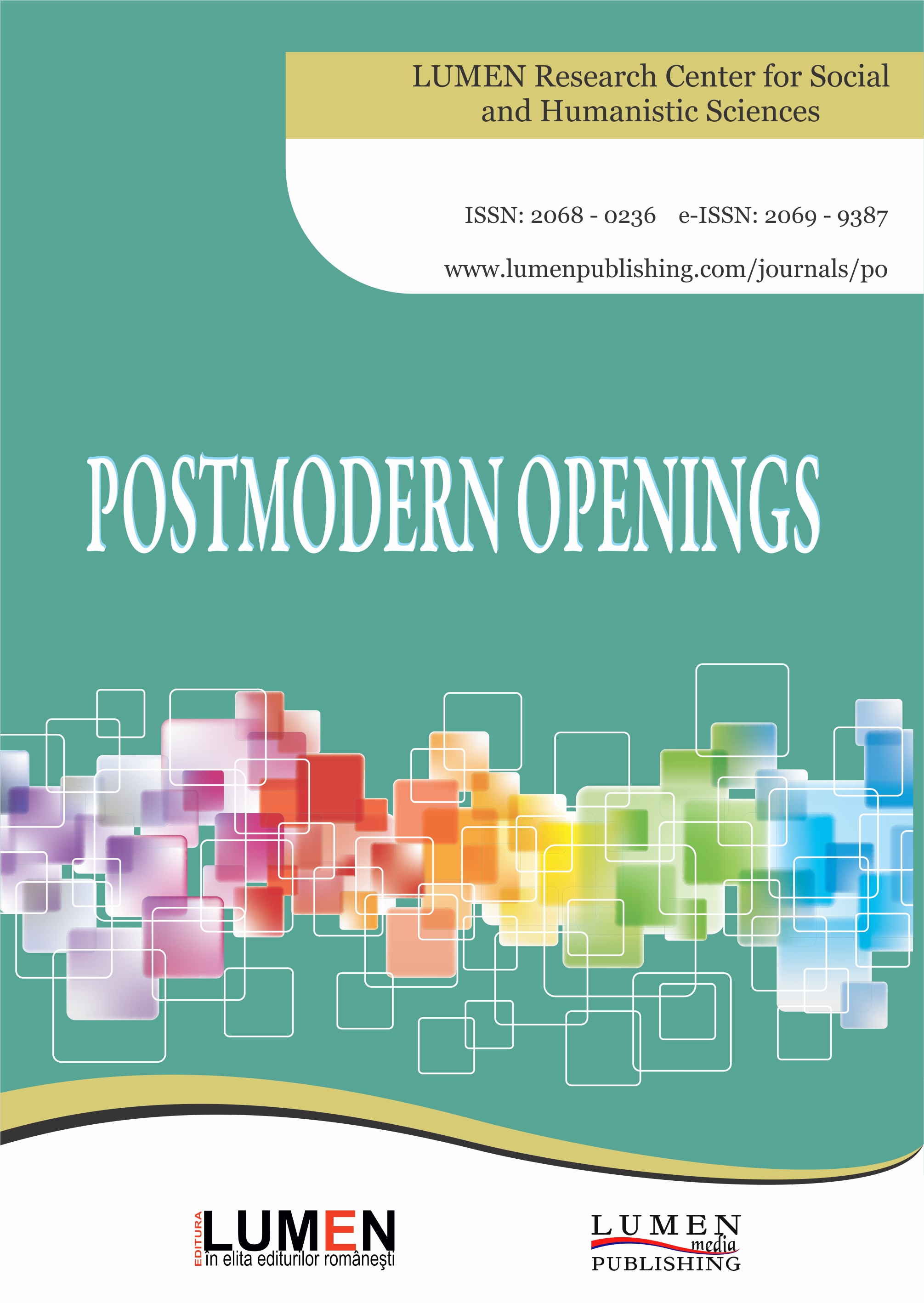
The theme of the Adamic Fall, of the loss of the heavenly existential paradigm was one of the major creative reasons for the entire European cultural tradition. The role played by the constant reporting of early theological environments to translations of biblical texts cannot be neglected in this context. The myth of the collapse of the human being in the ephemeral mundane space and time is mainly claimed from the Vetero-testamentary tradition, taken up and conceptually continued by the Christian thinking. The way in which this classic motif was received and assimilated in the sphere of all European spirituality, and not only, indicates a prior propaedeutic background, a pre-primary preparatory framework. This cultural background appears to be the universe of Ancient Greek mythology, the universe given to humanity through the writings of the Great minstrels of Greek antiquity such as Homer or Hesiod. From this universe, the image of a hierarchy of human fall begins with the loss of the Golden Age, which emphasizes the Prometheic gesture of stealing the fire from the gods, as symbol of knowledge and technological advancement. Is this myth that indicates the risk of the defiance of a universal axiomatic by the man, still present nowadays? Or does it find its dramatic confirmation nowadays?
More...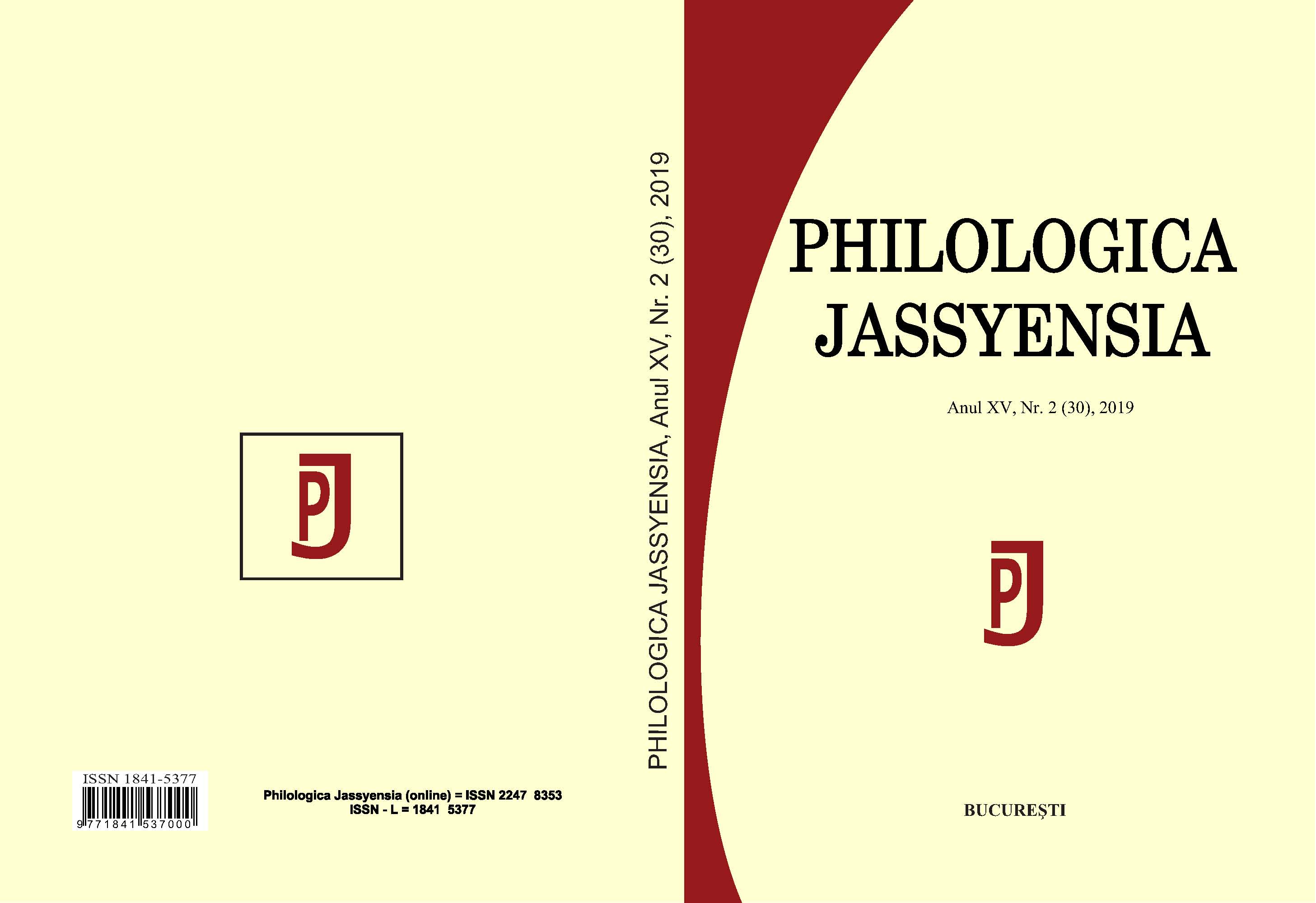
This article is about how much Greek St. Augustin knew. This is an old and overdiscussed issue. My small intervention approaches three questions related to “the problem of languages”. First: How familiar was the Greek language to St. Augustin? Second: to what purpose did Greek language and culture appear in his texts? Third: How deep did Greek language and culture penetrate Western thinking at that time? All these can be brought under the formula of G. Madec: quaestio vexata. St. Augustin’s relation to the Greek language and its philosophical vocabulary can be seen in three dimensions: quotation, transliteration and translation. Regarding the “Greek language” of Saint Augustin, commentators are either skeptics or optimists. The problem is not whether Augustin knew Greek at all, but how much Greek did he know. In the end, we must not throw over his times the shadow of the times that followed.
More...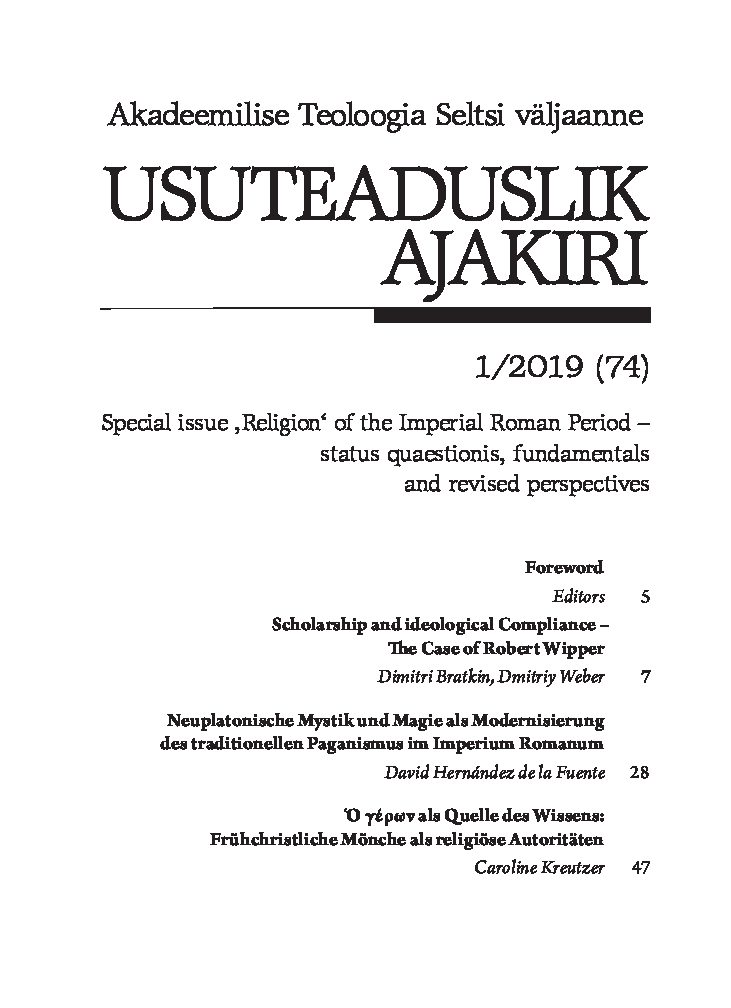
This article presents the characteristics of the prayers in Epictetus’ writings with the help of the analysis of two examples. They will illustrate that the prayers in the Discourses are model prayers. Thus, in addition to the religious meaning of prayers as communication with the deity, they also have a didactic function. With the help of these texts the praying person practices a certain view of the world and his role in it, not through argumentation, but repetition in which he is emotionally involved. In order to complete this picture of Epictetus’ prayers examples of the ancient theory of prayer are presented in comparison: Cleanthes, as a Stoic predecessor of Epictetus, and the church father Clement of Alexandria, as an early Christian writer on whom Epictetus had influence.
More...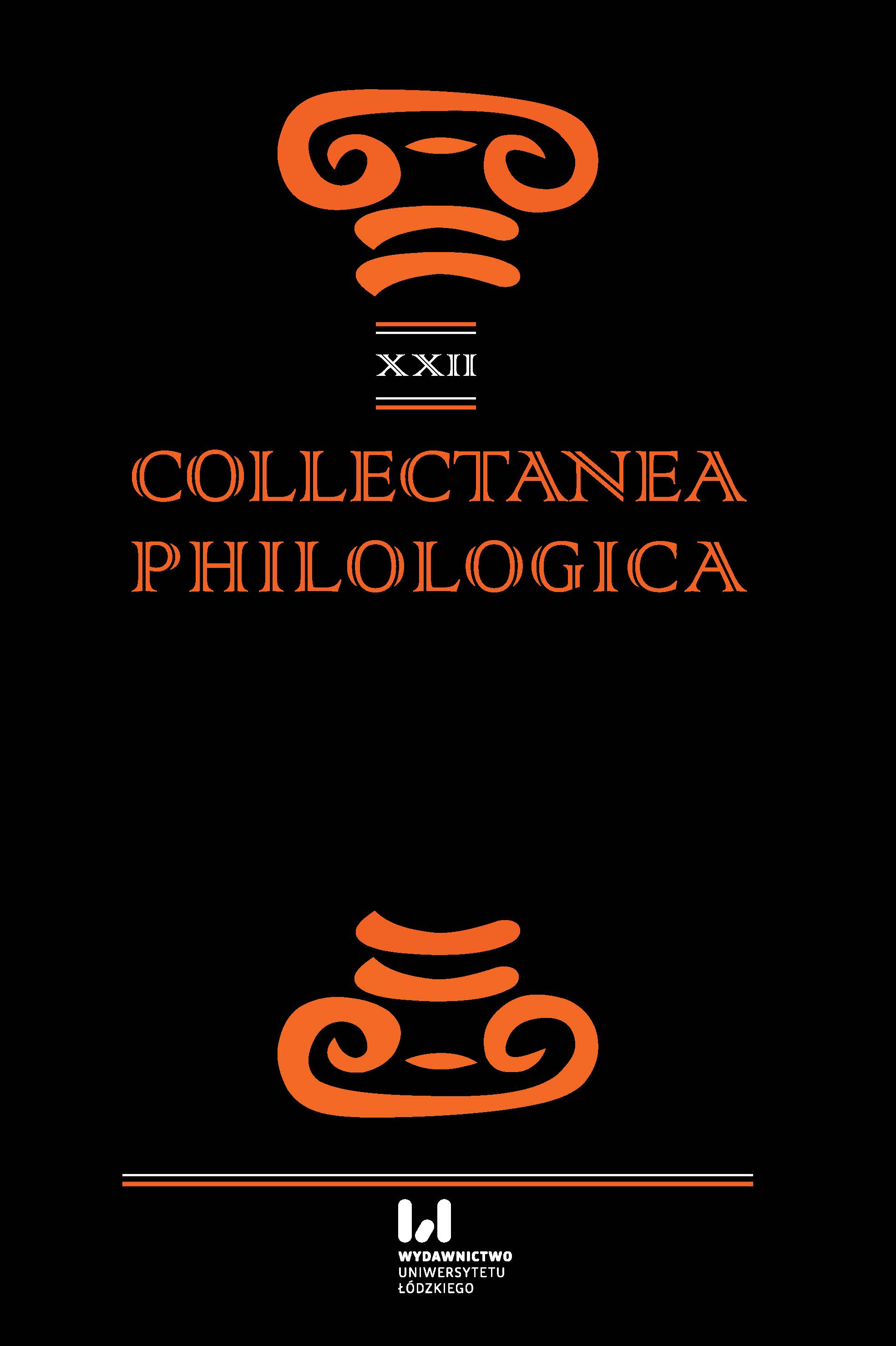
Lucretius, considered to be the continuator of Epicure, is the author of the poem De rerum natura. Essentially, this title suggests that it is a work that addresses the problems of ancient physics, in this case the materialistic concept of reality. Of course, this is true, but besides the physical doctrine, the poem also contains numerous sections on ethics and morality. Although no part of De rerum natura is a constant ethical argument, the whole text is permeated with information that serves precisely this purpose. The aim of this article is to show how the poet uses in his prologues for subsequent books of the poem the structure, content and various stylistic and rhetorical elements to convince the reader of the rightness and values of the explicitly and implicitly demonstrated ethical views he proclaims.
More...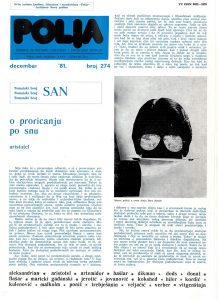
Nije lako ni s prezrenjem odbaciti, a ni s poverenjem prihvatiti predskazanja do kojih dolazimo dok spavamo, a daju se, kako se tvrdi, iščitati iz snova.
More...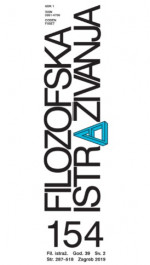
Review of: Augustin Kvočić - Berislav Podrug, Platonov Simpozij, Eros kao počelo filozofije, Demetra, Zagreb 2016.
More...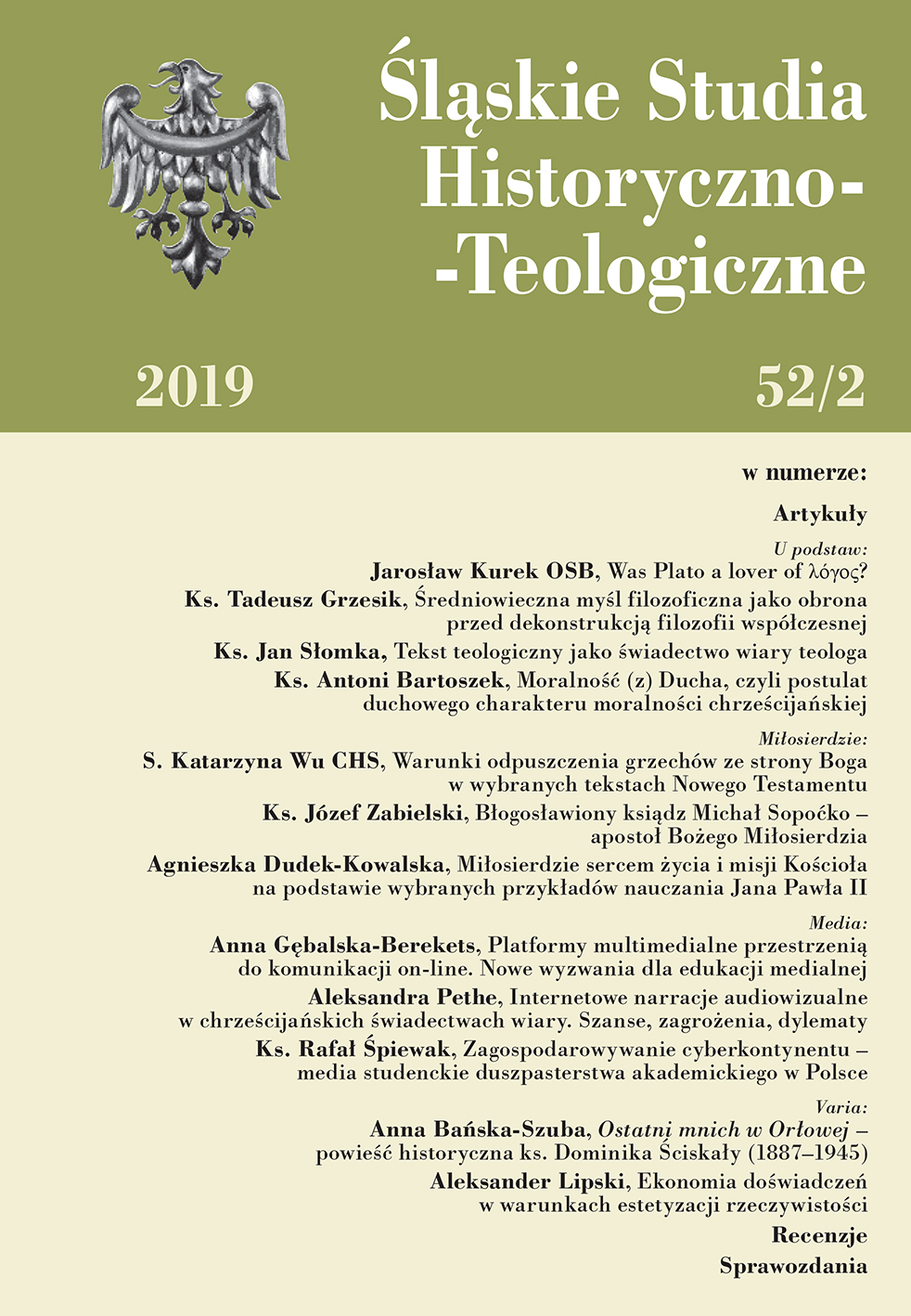
This paper focuses on the concept of logos in the writings of Plato. After preliminary methodological considerations, it proceeds to attempt a provisional definition of the term. It then examines the philosopher’s capacity to be philologos. This ability, the paper shows, is closely connected with the philosophical dimension of music. This eventually leads to a novel and complex definition of logos. Contextualised in the historical event of Socrates’ trial as recounted in the Apology, it argues for the capital importance of the dialectical search for logos in Plato’s philosophical work.
More...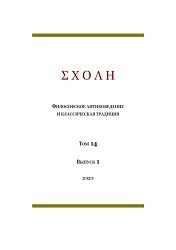
To understand the meaning and function of the ordinal numbers in the myth of the races it is essential to have a full grasp of how the myth is composed and its structure is supposed to be perceived by a listener or reader. There is a general silence among Hesiod scholars about the meaning and function of the ordinal numbers in the myth. A tacit agreement may be inferred from such a silence: the ordinal numbers are implicitly taken to merely express the chronological order of the races. In this article, I examine each and every one of the ordinal numbers that appear in Hesiod’s myth. I demonstrate that the ordinal numbers preserve their hierarchical dimension even in the cases in which this appears to be less convincing.
More...
In this paper, I propose a new reading of Phaedo 99b6-d2. My main thesis is that in 99c6-9, Socrates does not refer to the teleological αἰτία but to the αἰτία that will be provided by a stronger ‘Atlas’ (99c4-5). This means that the passage offers no evidence that Socrates abandons teleology or modifies his views about it. He acknowledges, instead, that he could not find or learn any αἰτία stronger than the teleological one. This, I suggest, allows an interpretation of the Phaedo in which Socrates offers a consistent account of the αἰτία of generation and destruction.
More...
The article presents Aristotle’s and H. L. A. Hart’s approaches to indeterminacy of law. It is shown that both Hart and Aristotle have associated indeterminacy with the general nature of law and legal rules, but they interpret this relationship in different ways, as well as in different ways they interpret the reasons of general nature of law and indeterminacy. If for Aristotle the general nature of law is the cause of indeterminacy, then for Hart it is a consequence. But both philosophers definitely agree that for a more effective legal regulation, a margin of indeterminacy in legal rules should nevertheless be tolerated.
More...
This article analyzes two fragments by the last Iconoclastic Patriarch John Grammaticus (837–843). A number of parallels to the doctrine in the fragments have been identified, including Aristotle, Theodoret of Cyrrhus, Basil of Caesarea, and John Philoponus. It is proposed that the main source of the fragments was a passage from the Epilyseis or Solutions Proposed to the Arguments of Severus by Leontius of Byzantium.
More...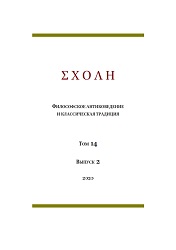
In this paper we study the organization of the allegory of the cavern through the investigation of knowledge verbs. First, we briefly follow the interpretations of the allegory of the cave that we consider most significant and our perspective: all are valid provided that each does not deny the others. At our core we analyze the verbs of knowledge: how they relate to each other and what structure of knowledge they establish. In the conclusion, we affirm that the verbs do not present a vision of being as "what is", but as "what is being"; this means, with respect to the allegory, that the relation between being and intelligibility means a pathway of mutual equalization, which the prisoner of the cave goes through; nevertheless, the attempt to reach a comprehensive intelligence of the being requires one more step: to integrate the phenomena to the comprehension of the real thing.
More...
The ancient authors knew nothing certain about Spartan lawgiver Lycurgus save that he lost his eye (allegedly because of the opposition to his reforms). This small detail provides the best indication to the original character of Lycurgus. Greek, Indian, Iranian and other texts repeatedly mention the eye of a highest god, and there were Sumerian precedents for that. The idea of the eye of god was initially connected with the notion of the celestial pole and its symbolic representation. An important and characteristic function of the all-seeing Eye was to oversee justice and right order, just as ‘the eye of Zeus’ does in Hes. Op. 267. Spartan one-eyed Lycurgus was a god of that type. Conscious efforts of fifth century’s Spartan politicians who were able to influence contemporary poets and writers turned Lycurgus into a lawgiver of a kind of Athenian Solon.
More...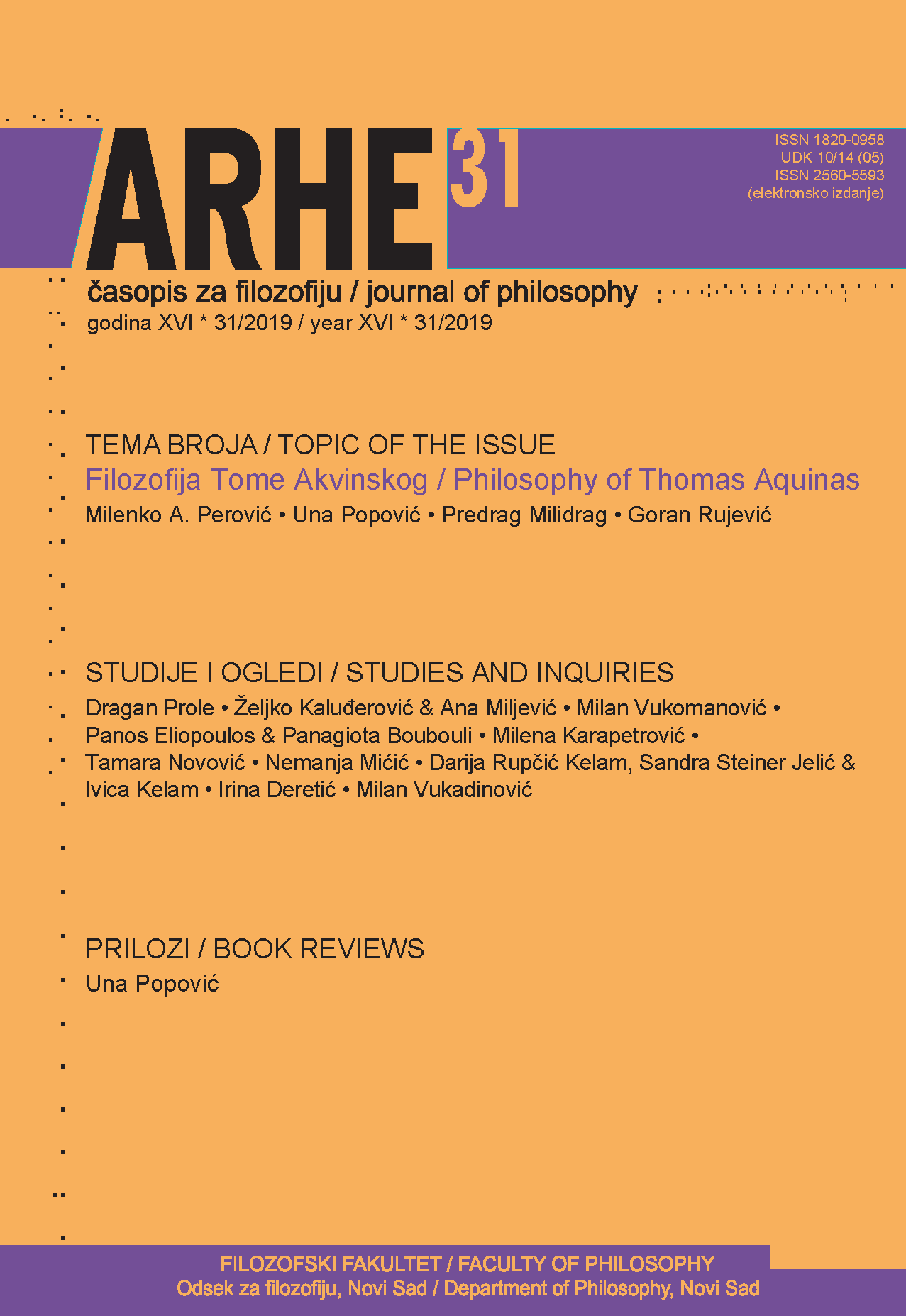
The first part of the article analyzes Aristotle's treatment of animals and the research of the authors focuses on three issues: the presence of logos in animals, if animals can act voluntarily and if animals are responsible for what they do. Stagirites' general standing point is that animals do not have beliefs, opinions, discernment, thinking, understanding and reason. By studying his volumes it has been determined, subsequently, that animals can act voluntarily. Resolution to the dilemma whether animals are responsible for what they do depends on the understanding of Aristotle's concept of responsibility. If responsibility is understood as regulating all of those activities which were undertaken on purpose i.e. voluntarily, animals can be considered responsible. On the other hand, if the scope of responsibility is limited to the moral evaluation of acts, including the activity of logos, animals will be excluded from thus understood concept of responsibility. The authors have, following in Stagirites' footsteps, concluded that since animals can have phantasia that what they do is right or wrong, they should be either rewarded or punished for their acts. The second part of the article examines the Theophrastus' work entitled On Piety which reports not only on his opposition to sacrificing animals, but also his non-acceptance, moreover, condemning the consumption of meat, i.e. the linking of these two acts while pointing out their interdependence. The most important Eresian's philosophical contribution is reflected in the thesis that animals are intrinsically related to humans, so that due to the substantive nature it is unfair to kill them. People and animals are, inter alia, interconnected by their souls. Although some living beings have more and some less perfect souls, all of them by nature have the same principles, which is evident from the resemblance of their properties, as well as from the fact that they have common primordial parents: Uranus (Heaven) and Gea (Earth). Their similarity, then, is also reflected in the aspect of desire, anger, and especially in regards to senses. Finally, contrary to Aristotle's reception of a man and his privileged status in nature, Theophrastus considered that humans and animals are also related in terms of reasoning.
More...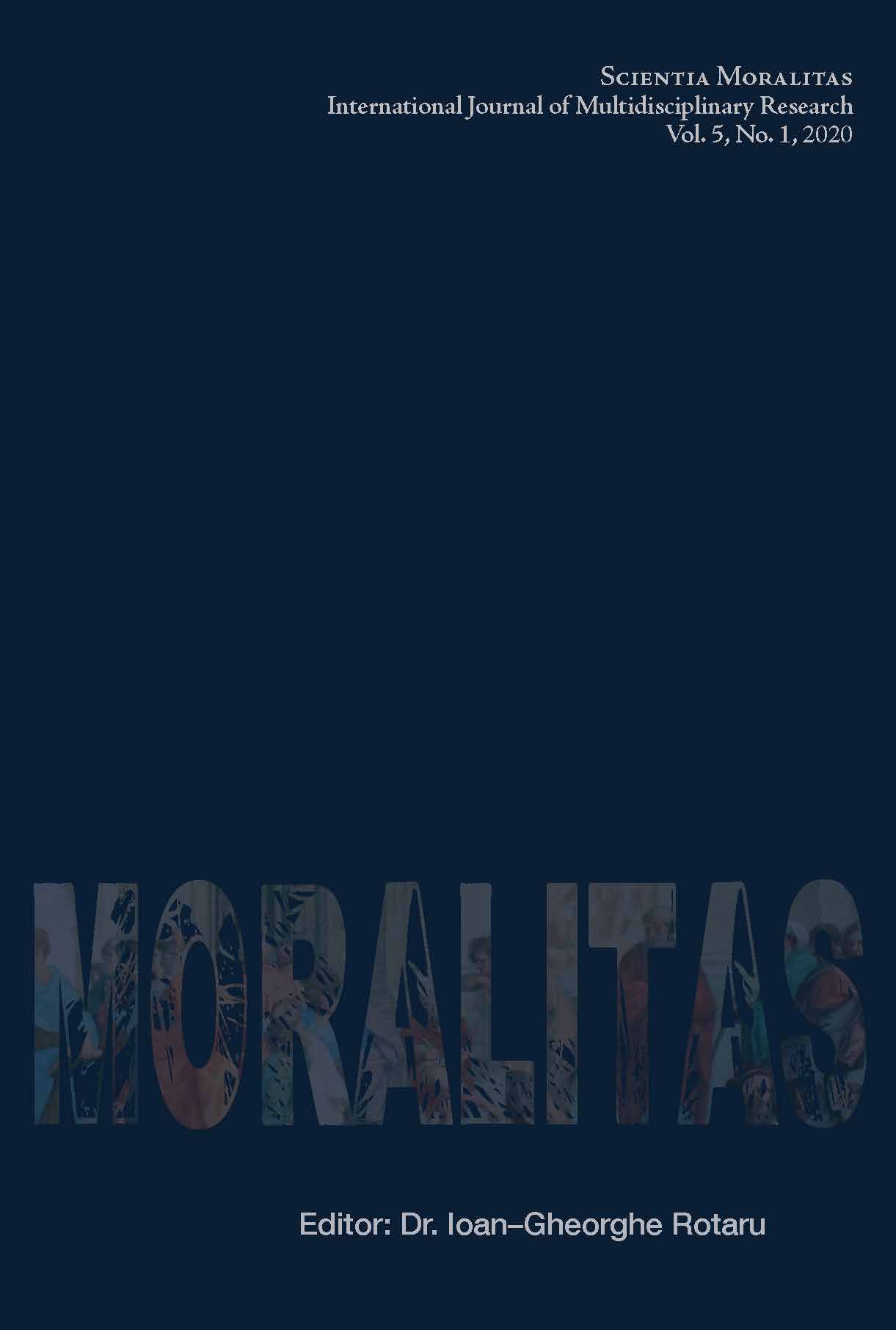
Plato’s ethics lie at the centre of his philosophy. So to grasp his moral theory we need to understand how it is integrated with the enterprise as a whole. If we look closely at Plato’s metaphysics, we can easily ascertain that the Greek philosopher proclaims the impossibility of being in this world the foundation of the ultimate cause, which is situated in a superior of the ideal world. From this vision came the theory of two worlds or realities. A productive world, that of Ideas, the true reality, known through the eye of thought, the world of eternal prototypes; and the world is produced by the sensible world, the world of appearances. Ideas form a logical system subordinated to a Supreme Idea that is the Idea of Good.
More...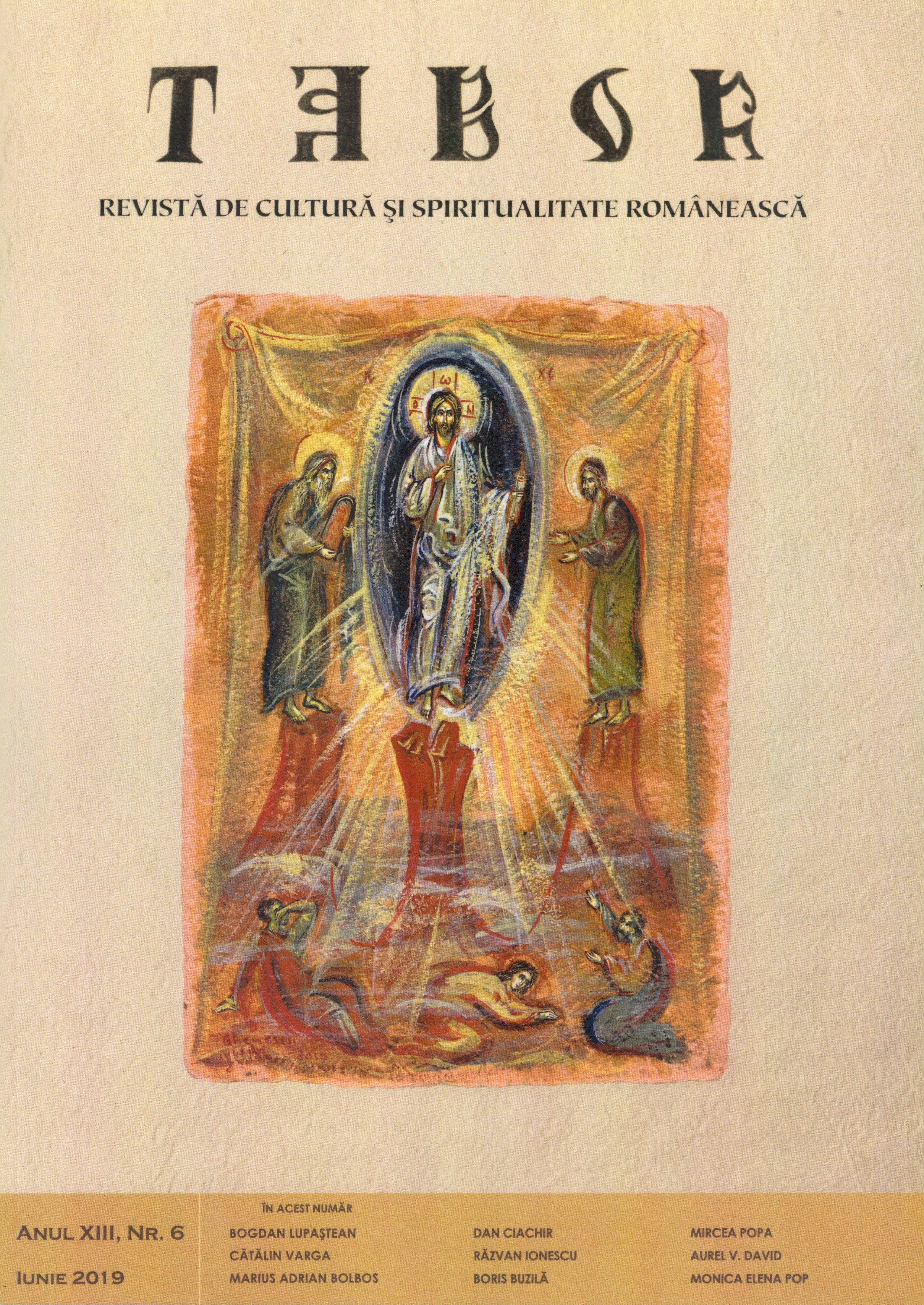
The plotinian man is located between heaven and earth, between intelligible and sensitive; therefore, he has a celestial origin and is (ir)recoverably penetrated by the soul. Although his birth is a contradictory and uncertain event, a boldness and perhaps even an apostasy from All, he constantly seeks to experience the presence of a Transcendent Good and / but inaccessible by intellectual means. Soteriology developed by Plotinus, based on the theory of the soul that has never descended into the body, conveys that the duty of man is to realize the activity of the part remaining up there, so as to reach (ac)knowledge of the intelligible and implicitly of the state of happiness that follows this approach, linking what is divine in him, to the divine in the universe.
More...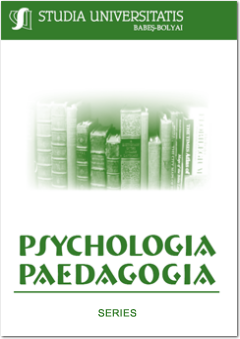
Death is a concept studied from ancient times by all major areas, from literature and art, to philosophy and psychology. In this research, we analyze the way Socrates, the famous Greek philosopher, negotiates the idea of death, through his own death. We approached this, because the ancient philosopher was put in this situation when he was sentenced to death, unjustly, following a democratic decision. His way of seeing death reveals a formula that does not match the expectation of his contemporaries, nor the classical typology of the imminence of his own death, belonging to psychiatrist Elizabeth Kübler-Ross. And the explanation of this non-coincidence is based on the philosophical idea of man and world and the specifics of his philosophical practice. It is precisely this philosophical conception and practice that will make Socrates’ attitude become repeatable and not unrepeatable, as one might expect, since this attitude appears so conditioned by specific elements. In fact, the rational research on the grounds of beliefs and personal knowledge that stands at the basis of his philosophical practice, is deeply rooted in the foundations of Rational Emotive Behavior Therapy (REBT). Therefore, what lays at the basis of Socrates’ view on death goes far beyond the ancient cultural framework. To fill in the phenomenal dimension with the one of organic layer, the analysis will also include an interpretation of Socrates’ behavior, from the dopamine mechanism approach.
More...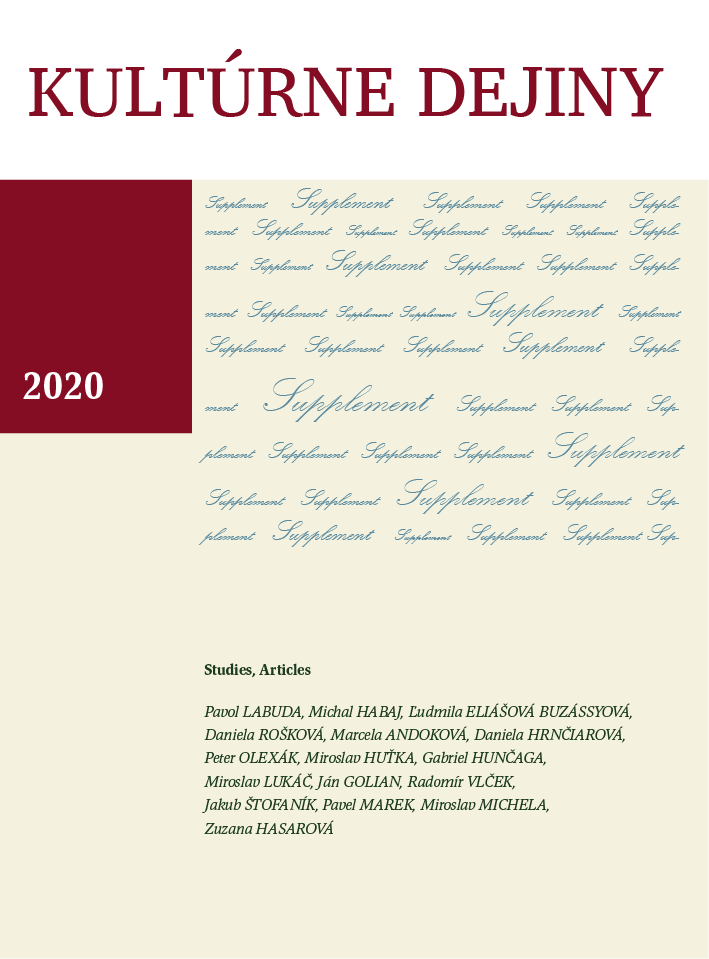
The overall purpose of this paper is to contribute to the debate over a possibility to reconstruct such theories which are not explicitly formulated in the preserved texts of ancient authors. Aristotle is one of those who did not write a single treatise on language, though language – both, as an instrument, as well as an object of the study – was still focal point of his philosophy. In his writings, Aristotle rigorously distinguishes several ways of methodologically examining same phenomenon. He is aware of the fact that every phenomenon can be examined from various perspectives and that different goals of the study lead us towards different answers. Aristotle’s views on language are scattered through his entire oeuvre. The main aim of this paper is to offer and justify a new way of reconstructing Aristotle’s theory of language. In the first part, the paper justifies the very existence of Aristotle’s theory of language and outlines a plan how to proceed with reconstruction of such theory. In the second part, the preliminary plan is situated into the current state of Aristotelian scholarship. Finally, in the third part, the plan of reconstruction is elaborated using an integrationist approach. Integrationism (the idea that our language is a very complex phenomenon which has to be studied from different perspectives and the results of those studies cannot be reduced to each other and cannot be merged into a single atemporal model, instead those results should be understood as an integral part of the very temporal nature of our language) allows me to explain how various different dimensions of language are uncovered in Aristotle’s works and how they gradually arise from each other.
More...